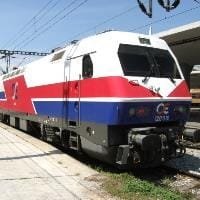(BRUSSELS) – The EU reached provisional agreement on opening up the EU market for domestic passenger rail transport, with the aim of boosting the quality of services and improving the performance of the rail sector.
The new rules, agreed by European Parliament and Council of Ministers negotiators late on Tuesday, would boost competition in two ways. First, railway companies should have access to the EU domestic passenger rail market from 1 January 2019 in time for the railway timetables starting on 14 December 2020.
Second, in cases where authorities decide to award public service contracts to provide passenger rail services, which currently make up the majority of passenger rail services in the EU, competitive bidding for public service contracts would be brought in gradually as the main tool for selecting service providers.
Competitive bidding for public service contracts for passenger rail services will be the norm. However, for six years, it will remain possible to award public service contracts directly. After this transition period, any direct award will only be possible on the basis of objective efficiency and performance criteria.
To prevent conflicts of interest and improve financial transparency between rail operators and infrastructure managers, certain safeguards will be put in place. Member states will be required to ensure that infrastructure managers grant non-discriminatory access to rail operators and that their impartiality is not affected by any conflict of interest.
Transport Commissioner Violeta Bulc welcomed the agreement, which, she said, “will also create new investment opportunities and foster job creation in the sector.”
Background
The 4th railway package, tabled by the European Commission in January 2013, aims to improve the competitiveness of the rail sector and quality of rail services by introducing more competition in passenger services and ensuring a level playing field for operators, and reducing the costs to rail operators of obtaining authorisations and certifications.
Further information


